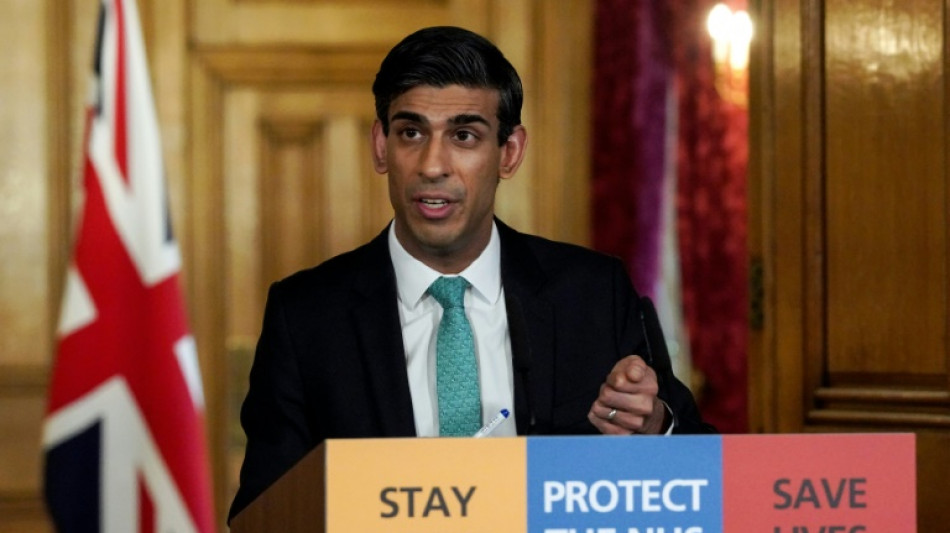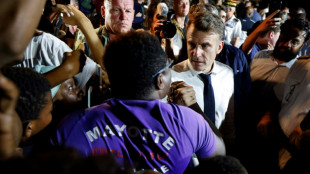

UK PM Sunak defends pandemic hospitality scheme at Covid inquiry
British Prime Minister Rishi Sunak on Monday defended his scheme to encourage people to eat out following the first coronavirus wave, saying it was not responsible for a second wave of infections.
Sunak, who was finance minister during the crisis, told the public inquiry into the UK's handling of the pandemic that he was "deeply sorry" for those who lost family to the disease.
But he said there was no evidence his August 2020 "Eat Out to Help Out" scheme, which picked up a chunk of the bill for those eating out, had led to more infections in the winter.
He pointed out that other countries suffered a similar wave and that experts had said another bout was inevitable.
He also claimed that scientific advisers had not raised concerns at the time and that the scheme had secured millions of hospitality jobs hit by weeks of Covid lockdowns and restriction.
"Hospitality had been opened as part of the May roadmap, and not opened in a casual or wanton way, it had been open with a significant set of restrictions," Sunak told the inquiry.
Scientists had approved reopening of restaurants and cafes under such circumstances, he said.
"My primary concern was protecting millions of jobs of particularly vulnerable people who worked in this industry," he added.
In a message disclosed earlier to the inquiry, one government scientific adviser, Angela McLean, called Sunak "Dr Death, the Chancellor (of the Exchequer)" over concerns about the scheme.
But Sunak said that in the month between the scheme being announced and implemented, scientific advisers "had ample opportunity to raise those concerns in forums where I was or where the prime minister or others were, and they didn't".
- Lost messages -
Sunak earlier said one of his roles during the pandemic was "making sure" then prime minister Boris Johnson was aware of the economic impact of his decision to lock down the country as the virus spread.
He also played down suggestions he had been frustrated by Johnson changing his mind over policy, saying that he had only reacted to shifting scientific advice.
Sunak's policy of subsidising the wages of workers hit by the pandemic, meanwhile, cost billions.
He accepted on Monday that "the impact of having to pay it back only comes well after the fact... and now everyone is grappling with the consequences".
Sunak also had to explain that he had lost WhatsApp messages sent during the crisis as they had not transferred over to his new phones.
Johnson told the hearing last week that the app had "somehow" automatically erased its chat history on his phone for the first six months of 2020.
The inquiry has already heard from prominent figures including Johnson's controversial ex-aide Dominic Cummings and Patrick Vallance, who was the government's chief scientific adviser at the time.
Vallance told the inquiry Sunak's scheme was "highly likely" to have spurred deaths.
One of his diary entries recorded Cummings saying Sunak "thinks just let people die and that's OK".
Sunak has denied the comment and highlighted that Vallance confirmed he did not hear him say it.
- 'Trade off' -
According to material understood to have been shared with the inquiry's main participants, Sunak told a journalist last year he had not been "allowed to talk about the trade-off" between the economic and social impacts of lockdowns and their benefits to suppressing the virus.
He refuted that claim on Monday, saying he had the "ability from the beginning and throughout to feed into decision making".
Sunak's inquiry appearance comes as right-wingers in his ruling Conservative party meet to discuss how they will vote after a crunch debate Tuesday on his controversial immigration proposals.
The Tories, in power since 2010, are currently lagging well behind main opposition party Labour in opinion polls, with Sunak's own rating also down.
Nearly 130,000 people died with Covid in Britain by mid-July 2021, one of the worst official per capita tolls among Western nations.
Johnson was forced from office last year after public anger at revelations about a series of Covid lockdown-breaching parties dubbed "Partygate".
S.Kraus--MP




